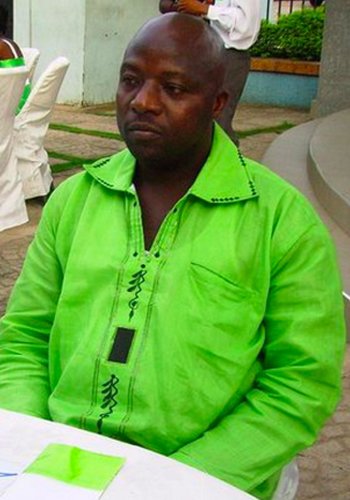
DALLAS – The first patient to be diagnosed with Ebola in the United States died from the disease Wednesday
and now Dallas health officials are facing a situation they have not
before experienced: how to handle a body that could remain highly
contagious for several days.
Thomas Eric Duncan, 42, had been
in isolation at Texas Health Presbyterian since Sept. 28. His death
comes four days after his condition was downgraded from serious to
critical.
Duncan had been on a ventilator for several days and was receiving kidney dialysis. Last weekend he started receiving an experimental drug called brincidofovir. It was not immediately clear what would happen to his body.
“It’s been discussed, but there’s been no conclusion,” said Zachary
Thompson, director of Dallas County Health and Human Services, told
Yahoo News on Monday.In early August, medical missionary Kent Brantly became the first U.S. patient to be treated for Ebola after he contracted the disease in West Africa and was transported to Emory University Hospital in Atlanta.
Soon after, the CDC published a document titled “Guidance for Safe Handling of Human Remains of Ebola Patients in U.S. Hospitals and Mortuaries,” which states that the “handling of human remains should be kept to a minimum.”
Because Ebola is transmitted by direct contact with bodily fluids, the CDC recommends hospital staff should not attempt to clean the deceased or remove any medical lines or tubes. Instead, “the body should be wrapped in a plastic shroud” and immediately placed in two thick and zippered leakproof bags for transport to the morgue.
What this means for family is likely no chance to mourn loved ones at a traditional funeral service.
Dallas County Medical Examiner Dr. Jeffrey Barnard did not return calls for this story. His office contracts with the Anatomical Board of the State of Texas to collect and transport corpses. An employee who answered the phone in the board’s Dallas office on Monday declined to say if there was plan should Duncan pass away.
“I can't give any information out,” the woman told Yahoo News. “I have to end the call.”
Dallas County has been the lead agency for the Ebola investigation and containment in Dallas, but Thompson said Monday before news broke of Duncan's death that his local team would defer to other experts if he did not survive.
“The state and the CDC will make a recommendation on how the body will be disposed of,” said Thompson, whose office was criticized for being slow to decontaminate the Dallas apartment where Duncan stayed when he arrived in Texas from Liberia.
The CDC recommends autopsies be avoided, and that no embalming be performed.
It’s been a topic of discussion at the Dallas Institute of Funeral Service, where Wayne Cavender is an instructor and administrator.
“Since they don't have a good handle on controlling the disease itself, they are worried about an epidemic,” Cavender told Yahoo News. “So that's one way to help keep it from going further. Because if we embalm, we are going to come in contact with all the body fluids and everything. With universal precautions we shouldn't, but accidents happen on occasion.”
Instead, the CDC says, the “remains should be cremated or buried promptly in a hermetically sealed casket.” The casket must secure “against the escape of microorganisms” and have valid documentation for being airtight.
“There's really not an airtight casket,” said Cavender, who has been in the funeral business for 28 years.
“The sealer caskets that they sell are not a guaranteed-type of sealing issue. It's not completely airtight because you have to have a way to open them up and so forth. It's not like it's vacuum-sealed,” he said.
But the CDC warns that at no point should the sealed bags or casket be opened for viewing.
Duncan had recently traveled to Dallas from West Africa where the World Health Organization estimates that Ebola has killed more than 3,400 people this year. Health officials say traditional African burials, in which family members wash the body, has caused the epidemic to spread faster.
Cavender said he fully supports the CDC’s stringent standards for this country, but knows it could cost a family a proper goodbye.
“Everybody needs to bury their dead and have a funeral and viewing if that’s what they want,” he said. “That's the government saying you can't do that. It's very unfortunate for the family in that case.”
(This story originally published on Tuesday, Oct. 7, and was updated on Oct. 8.) LINK



